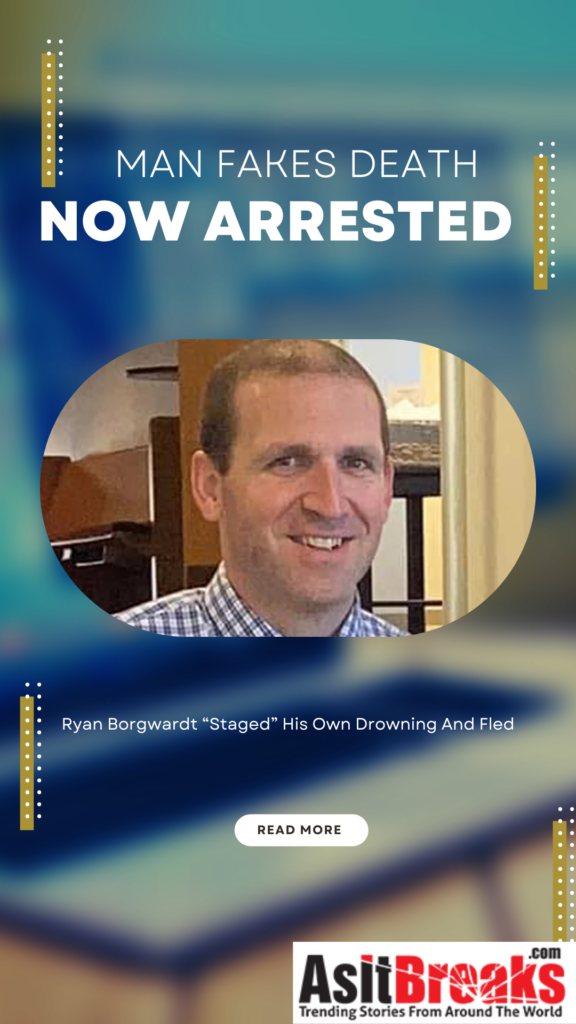Ryan Borgwardt, a 45-year-old father of three who allegedly staged his own drowning in a kayaking incident last August, is now in custody at the Green Lake County Jail, authorities confirmed Tuesday.
Borgwardt’s arrest marks the latest development in a case that began when he was reported missing on August 12 after his capsized kayak was discovered in Green Lake, where water depths reach 220 feet. The Green Lake County Sheriff’s Office has scheduled a press conference for Wednesday morning to provide additional details about his apprehension.
Sheriff Mark Podoll revealed in November that Borgwardt had meticulously planned his disappearance, executing a sequence of actions that included taking photographs of his passport, modifying his email settings, and transferring funds to a foreign bank account on August 11. Investigation showed Borgwardt had been communicating with a woman from Uzbekistan and was later confirmed to have entered Canada on August 13.
According to law enforcement officials, Borgwardt’s elaborate plan involved concealing an e-bike near a boat lodge, paddling both a kayak and an inflatable boat onto the lake, intentionally capsizing the kayak, and using the inflatable vessel to return to shore. He then reportedly cycled through the night to Madison, Wisconsin, before taking a bus to Detroit and crossing into Canada.
The disappearance prompted an extensive 54-day search operation after authorities discovered Borgwardt’s vehicle at Dodge Memorial Park, along with his fishing equipment, wallet, and identification in the lake. His family, including his wife of 22 years and their three teenage children, were led to believe he had drowned.
Investigators later determined that Borgwardt may have begun planning his disappearance as early as January, when he purchased a $375,000 insurance policy and airline gift cards. On November 11, Borgwardt sent authorities a video confirming he was alive and residing in Eastern Europe.
Sheriff Podoll previously indicated that Borgwardt could face criminal charges and be required to pay at least $40,000 in restitution for the resources expended during the search operation.


